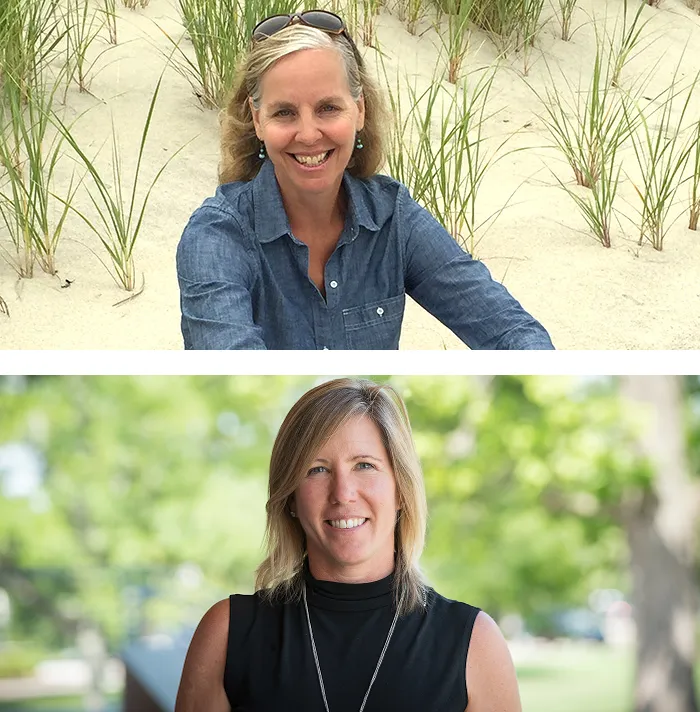
As the Environmental Studies Program prepares to move into the Department of Geography, professors are working on a new fellowship to help students work on conservation in communities.
Professors Cheryl Morse and Amy Seidl, co-directors of the program, have been building a fellowship that benefits both students and community partners. The fellowship will help students gain skills in conservation and community-building that environmental organizations look for when hiring workers.
“One of the needs we’ve been hearing about is the need to create a green workforce here in Vermont,” Morse said.
The fellowship will be split between two four-credit courses that pairs students with conservation- and environmental-focused groups in the community. The first session, taught by Seidl this coming fall, will focus on restoration ecologies. The second session, led by Morse next spring, will center on conservation groups, environmental justice and working in collaborative settings. Fellows will be expected to take both courses.
Cultivating partnerships with communities outside of the university is integral to the work of professors. Professors are required to devote 15 to 20% of their workload to service, on or off campus.
But Morse stressed that building trust between the university and the greater Vermont community is not a simple process.
“I see it as a mutually beneficial relationship, but one that takes time,” she said. "It takes time and effort.”
The Environmental Studies Program’s move to the Geography department highlights the importance of internal relationships, too. More than 500 students are pursuing a degree in environmental studies, but fewer than 90 students are pursuing a degree in geography.
The two programs have long histories and different cultures, and planners have to be careful when putting them together, Morse said. In an admitted students presentation Feb. 18, Seidl highlighted the engagement of students and professors of both programs throughout the environmental field.
The interdisciplinary nature of environmental issues allows for diverse opportunities in community engagement, Seidl said. The Geography department is relatively small, but its professors have relationships with organizations throughout Vermont and beyond that can inform classroom lessons and give students skills they’ll use in the workforce.
The Covid-19 pandemic has shown that working together, like these two programs, is crucial to longterm success, said Morse.
“One of the underlying foundations to being part of a university is continually working on building relationships and building community, especially in times of change,” Morse said. “And that's work that faculty members do all the time, but it's often invisible work.”